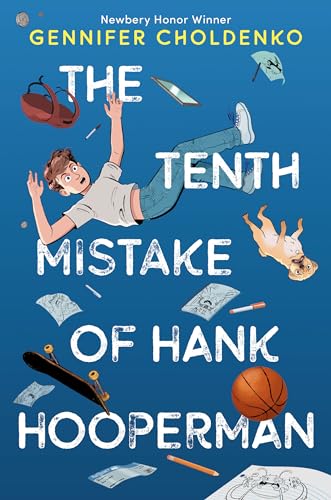Everyone makes mistakes, but what if one changes everything?
“The Tenth Mistake of Hank Hooperman” by Sarah Weeks introduces readers to Hank, a quick-witted but impulsive sixth grader navigating the ups and downs of middle school. Geared toward readers aged 9–12, this novel blends humor and heart as Hank grapples with friendship, responsibility, and the fallout of his own choices. When Hank accidentally triggers a cafeteria food fight that spirals into a school-wide prank war, he must team up with his methodical best friend, Luz, to undo the chaos; all while balancing his role as the new captain of the robotics team. Weeks’ knack for capturing authentic tween dialogue and school dynamics shines, particularly in Hank’s relatable struggles to balance his enthusiasm with the consequences of his actions. The story’s brisk pacing and lighthearted tone make it an engaging pick for middle-grade readers, while its underlying themes of accountability and teamwork offer subtle lessons without feeling didactic.
Weeks’ accessible writing style makes this book a standout for students who are learning English or who find traditional texts daunting. Short, straightforward sentences and realistic dialogue (“I didn’t mean to start a war—I just wanted to make the mashed potatoes interesting”) keep the narrative flowing smoothly, while strategic repetition of key phrases aids comprehension. Nate Powell’s illustrations punctuate pivotal scenes, such as Hank’s disastrous potato cannon experiment, offering visual humor that reinforces the plot for reluctant readers. The vocabulary leans conversational, with minimal idiomatic language, and technical terms related to robotics are clearly contextualized (e.g., “solder” is explained through Hank’s trial-and-error process). Teachers will appreciate how Hank’s journal entries, doodled between chapters, model reflective writing in a low-stakes format. Its focus on problem-solving and everyday conflicts, like mending friendships after misunderstandings, provides ample discussion material for social-emotional learning, ensuring it’s both a relatable and instructional addition to school libraries.

